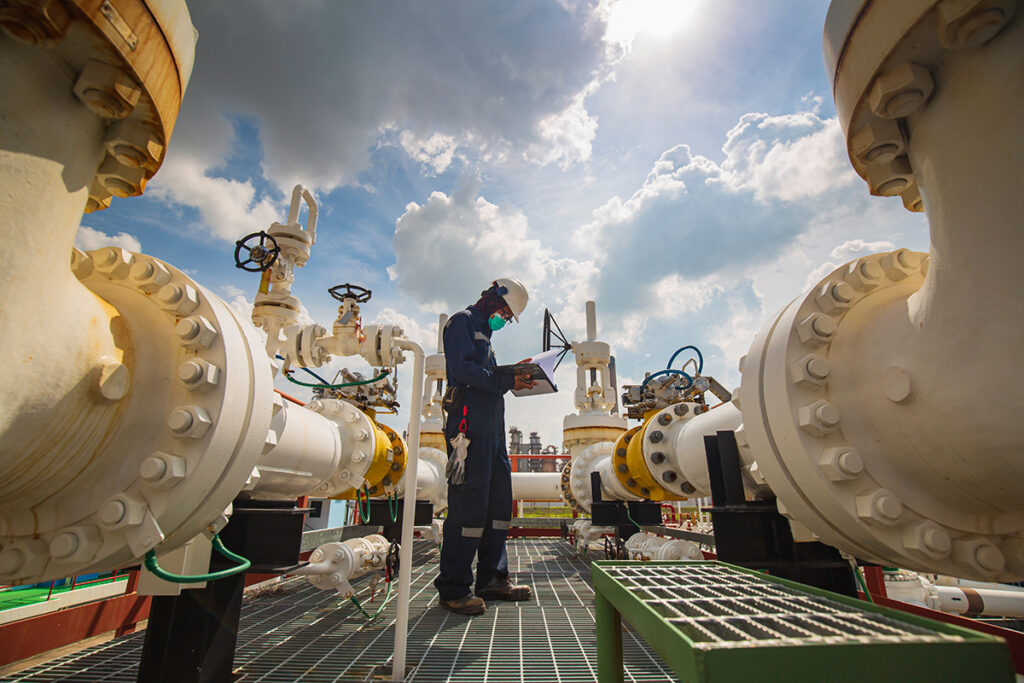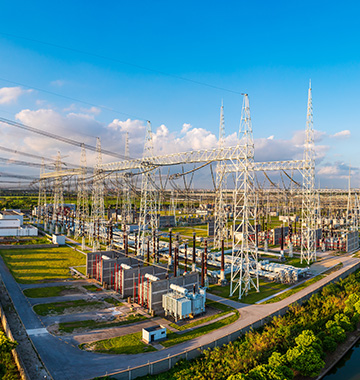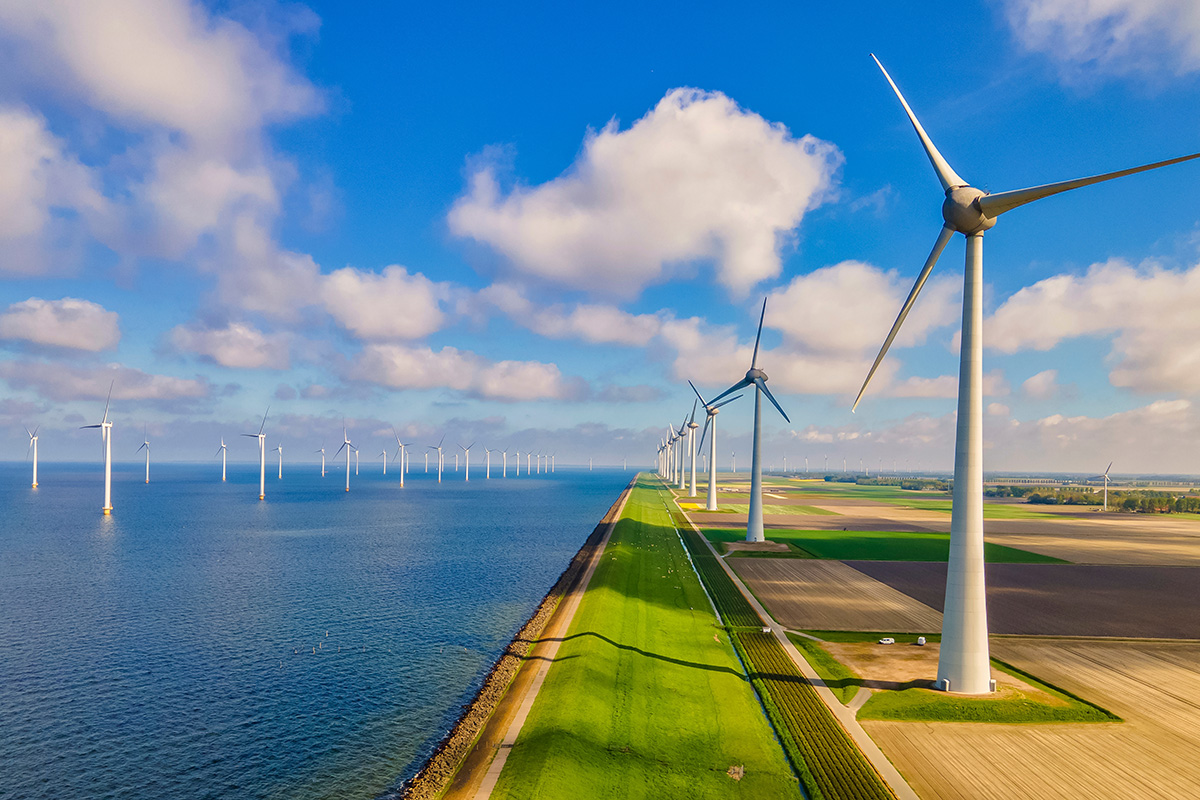How can you protect your business when the climate and external environment around you changes?
Get A Trade Credit Insurance Quote
Our international team of trade experts is here to help. Contact us to learn more about our coverage options for the Energy & Fuel Industry or request a free, no obligation quote that includes credit reports for your largest trade partners.
Energy & Fuel Industry

From increasing electricity consumption to external issues like port closures and fluctuating oil prices, the landscape for the energy and fuel industry is constantly shifting. Climate change exacerbates these challenges, with rising temperatures, severe weather events, and the need for cleaner energy solutions. At Atradius, we recognize these pain points and offer solutions to help businesses navigate through uncertainty. Our trade credit insurance provides peace of mind, protecting your company’s commercial accounts receivable from the unforeseen consequences of buyer default. Through risk management, bank funding support, and enhanced credit management, we empower businesses to thrive in a volatile market.

Global temperatures are rising, wildfires, drought, and high electricity demand put stress on the US’s energy infrastructure. Severe weather is projected to worsen as well with eight of the ten most destructive hurricanes of all time having happened in the past ten years. Experts are working on making fossil energy technologies cleaner and less harmful to people and the environment as well as increasing the efficiency of appliances, homes, businesses, and vehicles. U.S. electricity consumption grew by 2% in 2024 after nearly two decades of relatively steady demand. U.S. Energy Information Administration (EIA) forecasts electricity demand to continue growing at that rate in 2025 and 2026, which would be the first three years of consecutive growth in electricity demand since 2005–07. EIA expects electricity demand to grow fastest in the industrial sector—by 2% in 2025 and 3% in 2026—as new semiconductor and battery manufacturing operations come online. In the commercial sector, demand increases by 2% in both 2025 and 2026 as data-center power consumption increases.
Rising temperatures have increased electricity demand for cooling. For instance, the average American household’s summer electricity use has nearly doubled since 1973. Extreme weather events, such as hurricanes and wildfires, continue to disrupt energy infrastructure.

Recent shifts in government policies have created uncertainty for energy companies. For example, executive orders have been issued to block federal permits for renewable energy projects, such as wind and solar farms, while promoting fossil fuels to meet growing electricity demand. These policy changes can hinder the transition to cleaner energy sources and affect long-term planning.
Resistance from local communities to renewable energy projects is another hurdle. Concerns about land use, aesthetics, and environmental impact often delay or prevent the development of wind and solar farms. Balancing public interests with the need for sustainable energy is a complex challenge. Tariffs on imported energy resources and materials, as well as inflation, have increased costs for energy companies. These economic pressures can affect profitability and investment in new technologies. Geopolitical issues, such as sanctions on oil-producing nations and trade disputes, disrupt global supply chains and impact energy prices. These tensions can create volatility in the market, making it difficult for companies to plan and operate efficiently. The aging U.S. electricity grid remains vulnerable to cyberattacks and natural disasters. Modernizing the grid to improve security and reliability is a critical need for the industry.

The rise of electric vehicles and renewable energy is reducing oil’s share of global energy demand, which fell below 30% for the first time in 2024. Asia, particularly China, is expected to drive most of this growth as nearly 60% of this growth, with petrochemical feedstocks being a significant contributor. Oil prices have remained below $80 per barrel due to surplus production. Policy changes, such as increased domestic drilling or sanctions, can introduce volatility, affecting both prices and production levels. Global oil supply is projected to grow by 1 million barrels per day (mb/d) in 2025 and increased by 240,000 barrels per day in February 2025, reaching 103.3 mb/d. This growth was led by OPEC+ countries, with notable contributions from Kazakhstan, Iran, and Venezuela.
Curious About Pricing?
Atradius is here to help. Contact us to learn more about our coverage options or request a free, no obligation quote that includes credit reports for your largest trade partners.
Benefits to Credit Insurance
Trade credit insurance is a risk management tool that can help protect your company’s commercial accounts receivable from the devastating effects of loss caused by a bankruptcy or protracted default of your buyers. No company wants to face the unknown. At Atradius, we give our clients peace of mind knowing that their policy protects them from a customer’s sudden inability to pay. Especially in an industry that must adhere to high-cost environmental regulations, trade credit insurance can help with cash flow and to ensure companies are financially stable.
Get Your Questions Answered or Request a Quote
Atradius is here to help. Contact us to learn more about our coverage options or request a free, no obligation quote that includes credit reports for your largest trade partners.



